 Thirteen year old Aisha was walking to her grandmother's house, when she was ambushed by three men. They took it in turns to rape her.
Thirteen year old Aisha was walking to her grandmother's house, when she was ambushed by three men. They took it in turns to rape her.
Many capital punishment sentences begin with the fury and outrage of an aggrieved family member. This one was no exception.
As soon as Aisha crawled home after her ordeal, her father was on the telephone. Ibrahim Duhulow demanded justice from the police department. They suggested that he bring his daughter in.
The Duhulow family are devout Muslims, who were new to the port city of Kismayo. They had arrived from the Hagardeer refugee camp in Kenya, just three months previously. This made things difficult, not least because it meant that Ibrahim had totally misjudged what would keep his daughter safe.
The al-Shabab officers listened carefully to the story, then they promptly arrested Aisha. They had not heard a rape report. They had heard a confession. Aisha Ibrahim Duhulow had admitted to intercourse with three men outside of marriage; and that was an offense punishable by stoning.
Early in the morning of October 27th 2008, vehicles with loudspeakers drove slowly around the city. Their announcement stated simply that there would be a stoning in the Kismayo football stadium at 4pm. Over 1000 people answered the call to witness it.
At the appointed time, Aisha was dragged out into their midst. There was a hole dug in the center of the pitch and she knew what was going to happen to her.
Sheik Hayakalah, on behalf of the authorities, had spoken on the local radio station. He told listeners, "The evidence came from her side and she officially confirmed her guilt, while she told us that she is happy with the punishment under Islamic law."
Those watching her being hauled onto the pitch had a different story to tell. Some said that she'd become mentally unstable after being separated from her family, in the aftermath of her triple rape. Others knew nothing about that. They could just see a clearly terrified child begging for her life.
"I'm not going, I'm not going." Aisha cried, referring to the pit dug for her. "Don't kill me! Don't kill me!"

Her parents and brothers were amongst the spectators, helpless to do anything about it. But there were other protesters too.
Everyone there was Muslim, but this did not look like Allah's will. There was a surge of people rushing onto the pitch to save her. But the militia were ready.
Shots were fired into the crowd and there were injuries. An eight-year-old boy was killed. (Sheik Hayakalah later publicly apologized for that and stated that the gunman had been punished.) Order was restored and the execution went on as planned.
Aisha screamed and tried to escape, as four men forced her into the pit. She struggled as she was buried up to her neck. For someone supposedly 'happy with the punishment', she was making a pitiful fuss.
Then fifty men surrounded her armed with hefty stones brought in especially for the death penalty. They pelted her with them, as she fought to free herself.
Finally it was over. A pause. Nurses rushed on to dig the teenager up and check for signs of life. She was still alive! She was buried again and more stones came. Three times this occurred, until Aisha was eventually declared dead.
Even then, there was apparently a final round of stoning, just in case.
Her family fled Somalia shortly afterwards. Along with a veritable stream of people terrified that this could have happened to their daughter, their child, they made their way back to the refugee camps of Kenya and there they remain.


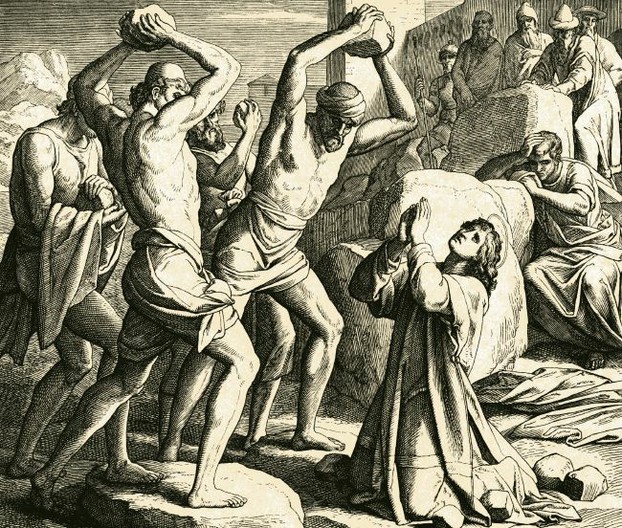

 There are two ways in which the condemned may be stoned to death.
There are two ways in which the condemned may be stoned to death.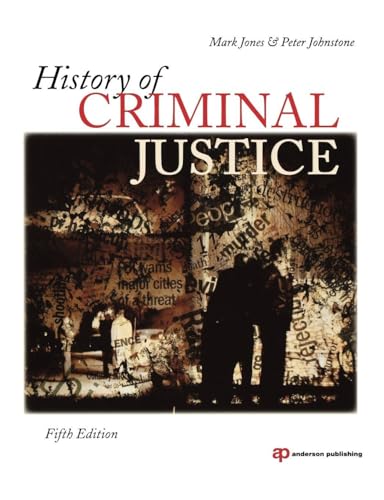



 Stoning is undoubtedly sanctioned by Biblical lore. The Old Testament covers the same ground as the Jewish Torah, so all of the offenses listed there also apply in Christianity.
Stoning is undoubtedly sanctioned by Biblical lore. The Old Testament covers the same ground as the Jewish Torah, so all of the offenses listed there also apply in Christianity.
 On January 12th 2011, police were called to an apartment building in Lansdowne, Pennsylvania, USA.
On January 12th 2011, police were called to an apartment building in Lansdowne, Pennsylvania, USA.


 brian mccoll
on 02/16/2017
brian mccoll
on 02/16/2017





 Stoning is undeniably a Judeo-Christian form of capital punishment, which is what makes its appearance in the Muslim world all the more startling.
Stoning is undeniably a Judeo-Christian form of capital punishment, which is what makes its appearance in the Muslim world all the more startling.


 Siddqa had already been promised to another man. The arranged marriage had not yet taken place, but the betrothal had netted $9,000 for her father. She did not want to be engaged to her future husband, because she was already in love with another man.
Siddqa had already been promised to another man. The arranged marriage had not yet taken place, but the betrothal had netted $9,000 for her father. She did not want to be engaged to her future husband, because she was already in love with another man. Then it was Khyyam's turn. He wasn't buried, but blindfolded with his own tunic. His arms were pinioned behind his back.
Then it was Khyyam's turn. He wasn't buried, but blindfolded with his own tunic. His arms were pinioned behind his back.


 Thirteen year old Aisha was walking to her grandmother's house, when she was ambushed by three men. They took it in turns to rape her.
Thirteen year old Aisha was walking to her grandmother's house, when she was ambushed by three men. They took it in turns to rape her.







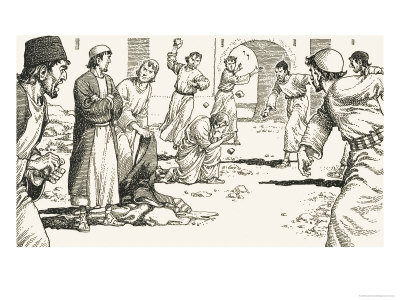
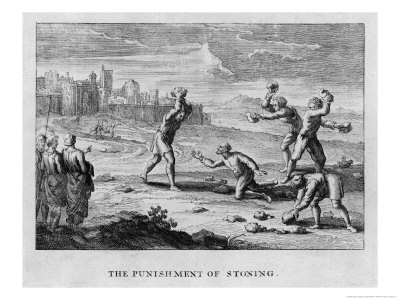
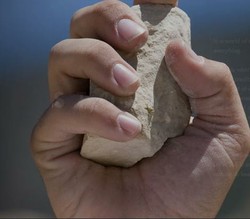

 St Tydecho's Churches in West Waleson 09/03/2014
St Tydecho's Churches in West Waleson 09/03/2014
 Goodies for an Outlander Premiere Partyon 03/06/2015
Goodies for an Outlander Premiere Partyon 03/06/2015
 Holocaust Memorial Day Interview with Rainer Höss, Grandson of Rudolf Architect of Auschwitzon 01/24/2015
Holocaust Memorial Day Interview with Rainer Höss, Grandson of Rudolf Architect of Auschwitzon 01/24/2015
 Romantic Valentine Gifts for an Outlander Fanon 01/16/2015
Romantic Valentine Gifts for an Outlander Fanon 01/16/2015



Comments
To avoid executing the wrong person it is better to execute no person.
I do believe the death penalty is biblical and moral but the problem lies with the system of man in deciding who receives it so therefore I'm against it! Even in the USA our Courts are flawed and justice can be blind so it's not always given in fairness and innocent people have been executed while quilty People have walked to harm again! So, have to say until our laws and justice system is majorly overhauled...no to the death penalty!
Those who stone people to death for a few moments create hell on Earth; and if you create hell on Earth, don't be surprised if it is your destiny after death.
I should clarify that I can't really wish anything like this on anyone. I was being glib in response to the article's question regarding for whom such punishment would be appropriate. I'm a Christian, and it's not my place to judge; I can only pray that the eyes of these persons will be opened to what's right. Regardless of who we are or what we believe, we should treat one another with dignity and integrity, not like carrion.
Aisha was a victim twice over. Her father shall forever have to live with the knowledge that his call for justice sealed his child's fate. She was just a child. I was still playing with dolls at 13. The only persons for whom I wish this fate (stoning) are the ones who believe that it's an appropriate way to handle rape cases, or situations where someone did anything else that was completely harmless, like talking to an unrelated male (a.k.a. "adultery").
Stoning is satanic. Simple as. And stoning a young child for being raped is behaviour of very twisted and dangerous satanic people.
It's good to hear from all sides, and even better when the view is that it's wrong to kill.
Though Pagan, I read all that you wrote about Spirit with my head nodding away in agreement. It also put me in mind of 'Spirit' by The Waterboys. Have you ever heard it? http://www.youtube.com/watch?v=s2G0Cj... (It's the song, not the background. The latter has been added by the uploader, but it is fun.)
That was a comprehensive statement of the evangelical Christian position applied to the death penalty.
My own take on the issue derives from the implications of living in the Spirit of God, which the church received at Pentecost. The more you live in the Spirit, the harder it becomes to take human life, as the Spirit drives you into a life affirming position. You may have to do so in war, but the difficulties grow ever greater
Thank you very much, John, for stopping by and clarifying the Christian message for us. No apologies necessary. That was nicely done and well received.
Stoning is only fulfilled as part of the old testament. The old testament stands to test as a ruler or a meter stick for how all humans fall against the glory of God. There are over 613 laws within the old testament or Jewish laws ,therefore it is nearly impossible to not break even one law that is also communicated to be a sin. The Christian faith is broke into eras as mentioned before me by other Christians. Starting into the time of Moses, disposition of Grace, and the tribulation period. Jesus has a great point for not stoning the woman because everybody has committed of sin even the article states this fact. For if we even break one we are still convicted of going to Hell in which Jesus paid the ultimate Sacrifice on the cross. Surely how can someone judge if the judge has commented the same sin. Can a murderer accuse another murderer without mercy ,and if so what gives him the justification? The laws are meant to bring us closer to Jesus to know that salvation is are only option of grace ,and from no other answer can we be saved except through Jesus Christ. Christianity teaches about love ,and not hate of the living under the New Testament through Jesus who is merciful. Jesus gives all people a choice through the free will given to them which subsides into two fellow options, to follow in his ways or to ignore them and walk away. In example would you rather have a mindless servant who follows the commands ,or a person who loves you at their own free will. I do apologize for the long message and hope that Christianity is more explained if not you can contact me for Christians and Non-Christians alike. Bye and have a blessed day ,and hope that one day you shall find the answer in Jesus.:)
P.S:Christianity was actually started when Jesus died on the cross ,and after that he appeared to the Disciples and which he proclaimed the rest of the word.